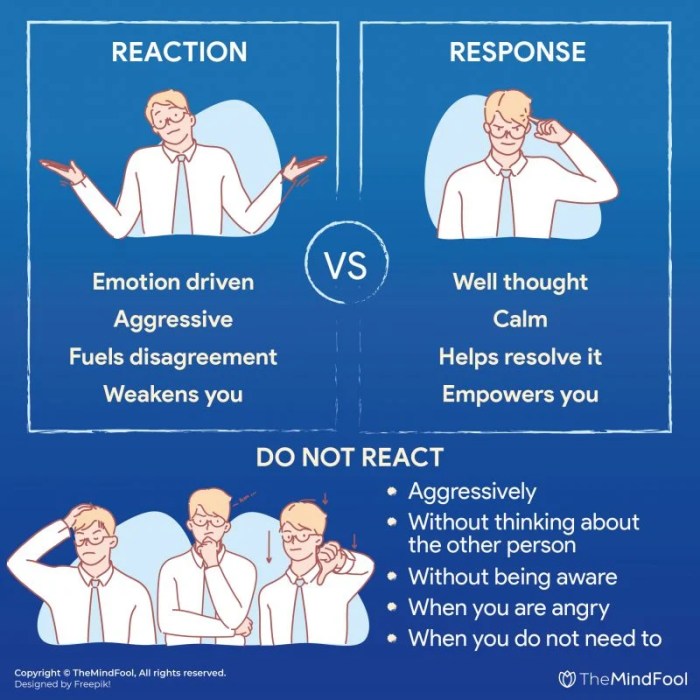Cringing response to do you remember – Cringing responses to “Do you remember” offer a unique window into the complex interplay between memory, emotion, and social interaction. When confronted with this question, individuals may experience a range of reactions, from mild discomfort to overwhelming embarrassment. This article delves into the psychological and social factors that contribute to cringing responses, exploring their different types, cultural influences, and potential implications for relationships and communication.
Cringing responses can stem from various sources, including feelings of inadequacy, regret, or shame associated with past experiences. The social context in which the question is asked also plays a significant role, as factors such as power dynamics and social norms can influence the intensity of the response.
Overview of Cringing Response to “Do You Remember”
The question “Do you remember” can often evoke a cringing response. This is because it can remind us of past experiences that we would rather forget, such as embarrassing moments, failures, or painful memories. Cringing in response to this question is a common human experience, and it is influenced by a variety of psychological and social factors.
Psychological Factors
One of the main psychological factors that contribute to cringing in response to “Do you remember” is the fear of being judged. We may worry that others will think less of us if they know about our past mistakes or embarrassing moments.
This fear can be particularly strong if we have low self-esteem or if we are sensitive to criticism.
Another psychological factor that can contribute to cringing is the feeling of shame. Shame is a painful emotion that is associated with the belief that we are flawed or unworthy. When we are reminded of past mistakes, we may feel ashamed of our actions and who we are.
This shame can lead us to cringe in an attempt to hide our flaws from others.
Social Factors, Cringing response to do you remember
In addition to psychological factors, social factors can also contribute to cringing in response to “Do you remember.” One of the most important social factors is the presence of others. We are more likely to cringe when we are in the presence of others who we believe know about our past mistakes or embarrassing moments.
This is because we are afraid of being judged or ridiculed by others.
Another social factor that can contribute to cringing is the culture in which we live. In some cultures, it is considered more acceptable to talk about past mistakes and embarrassing moments than in others. In cultures where it is less acceptable to talk about these things, people may be more likely to cringe when they are reminded of them.
Types of Cringing Responses

When confronted with the question “Do you remember,” individuals may exhibit varying degrees of cringing responses. These responses can be classified into several distinct types, each characterized by unique motivations and manifestations.
Avoidance
Avoidance responses are characterized by an attempt to evade or deflect the question entirely. Individuals may resort to tactics such as changing the subject, feigning forgetfulness, or simply refusing to engage with the question. The motivation behind avoidance is typically a desire to avoid uncomfortable or potentially embarrassing memories.
- Example: “I’m not sure what you’re talking about.”
- Example: “I don’t really remember anything from that time.”
Dismissiveness
Dismissive responses involve downplaying or trivializing the significance of the memory. Individuals may express indifference or contempt towards the past, suggesting that it is not worthy of attention or discussion. Dismissiveness often stems from a desire to distance oneself from past mistakes or perceived failures.
- Example: “That was so long ago, it doesn’t matter anymore.”
- Example: “I don’t care about that stuff.”
Confrontation
Confrontation responses involve openly acknowledging the memory but challenging its validity or interpretation. Individuals may question the accuracy of the recollection, offer alternative perspectives, or even become defensive. Confrontation is typically motivated by a desire to protect one’s self-image or to avoid being held accountable for past actions.
- Example: “I don’t remember it that way.”
- Example: “You’re misremembering what happened.”
Cultural and Contextual Influences on Cringing Responses
Cultural norms and social contexts play a significant role in shaping cringing responses. Different cultures have varying perspectives on what is considered embarrassing or inappropriate, influencing the intensity and frequency of cringing reactions. Additionally, social anxiety and nostalgia can amplify cringing responses in specific contexts.
Nostalgia and Cringing
Nostalgia, a sentimental longing for the past, can trigger cringing responses when individuals encounter reminders of their past selves or experiences they perceive as embarrassing. This is because nostalgia often involves a comparison between one’s present and past, leading to feelings of regret, embarrassment, or awkwardness.
Social Anxiety and Cringing
Social anxiety, characterized by excessive fear or anxiety in social situations, can intensify cringing responses. Individuals with social anxiety may be more sensitive to perceived judgment or embarrassment, leading them to experience stronger cringing reactions to behaviors or situations they perceive as potentially embarrassing.
Cultural Variations in Cringing Responses
- In Western cultures, cringing responses are often associated with feelings of shame or embarrassment. Individuals may cringe at behaviors or situations perceived as socially unacceptable or inappropriate.
- In Eastern cultures, cringing responses may be more closely tied to feelings of respect or deference. Individuals may cringe when witnessing behaviors or situations that violate social norms or hierarchies.
These examples illustrate how cultural and contextual factors can influence the nature and frequency of cringing responses, shaping their significance and impact on individuals.
Coping Mechanisms for Cringing Responses

Cringing responses to “Do you remember” can evoke feelings of embarrassment, anxiety, and regret. Developing effective coping mechanisms is crucial for managing these emotions and maintaining emotional well-being.
One strategy is to practice self-compassion. Acknowledge that everyone makes mistakes and experiences embarrassing moments. Treat yourself with kindness and understanding rather than harsh self-criticism.
Cognitive Reframing
Cognitive reframing involves changing the way you think about the situation. Instead of dwelling on negative thoughts, focus on the positive aspects. For example, remind yourself that the person you’re interacting with may not have even noticed your mistake or may have found it amusing.
Deep Breathing Exercises
Deep breathing exercises can help calm down your nervous system and reduce feelings of anxiety. Inhale slowly and deeply through your nose, filling your lungs with air. Hold your breath for a few seconds, then exhale slowly and completely through your mouth.
Humor
Using humor can be an effective way to defuse the situation and reduce embarrassment. Try to find the humor in the situation or make a light-hearted joke. This can help break the tension and make it easier to move on.
Seeking Support
If you’re struggling to cope with cringing responses on your own, consider seeking support from a trusted friend, family member, or therapist. Talking about your feelings can help you process them and develop healthier coping mechanisms.
Implications of Cringing Responses for Relationships and Communication

Cringing responses can have significant implications for relationships and communication. They can damage trust, intimacy, and self-disclosure, creating barriers to healthy and fulfilling interactions.
When someone cringes at something their partner says or does, it can create a sense of shame and embarrassment. This can lead to the partner withdrawing from the relationship, avoiding sharing their thoughts and feelings, and ultimately eroding trust. Cringing responses can also damage intimacy by creating a sense of distance and judgment, making it difficult for partners to feel close and connected.
Navigating Challenges
To navigate the challenges posed by cringing responses, it is important to be aware of the potential impact they can have on relationships and communication. If you find yourself cringing at your partner’s words or actions, it is important to try to understand why.
Are you cringing because you disagree with them, or because you are embarrassed by them? Once you understand the reasons for your cringing response, you can start to develop strategies for managing it.
- Communicate openly and honestly.Talk to your partner about how their words or actions make you feel. Explain that you are not trying to criticize them, but that you need to be able to express your feelings in order to maintain a healthy relationship.
- Be respectful of your partner’s feelings.Even if you disagree with your partner, it is important to be respectful of their feelings. Avoid making dismissive or judgmental comments, and try to see things from their perspective.
- Focus on the positive.Instead of dwelling on the things that make you cringe, focus on the things that you appreciate about your partner. This will help you to build a stronger bond and create a more positive atmosphere in your relationship.
FAQ Compilation: Cringing Response To Do You Remember
What are the different types of cringing responses?
Cringing responses can range from mild discomfort to overwhelming embarrassment. Some common types include physical reactions (e.g., blushing, sweating), verbal responses (e.g., stammering, apologizing), and cognitive responses (e.g., self-criticism, rumination).
How do cultural norms influence cringing responses?
Cultural norms can shape the acceptability and intensity of cringing responses. In some cultures, it may be considered rude or disrespectful to cringe, while in others, it may be seen as a natural reaction to certain situations.
What are some effective coping mechanisms for cringing responses?
Effective coping mechanisms include practicing self-compassion, reframing negative thoughts, and developing social skills to navigate potentially embarrassing situations.